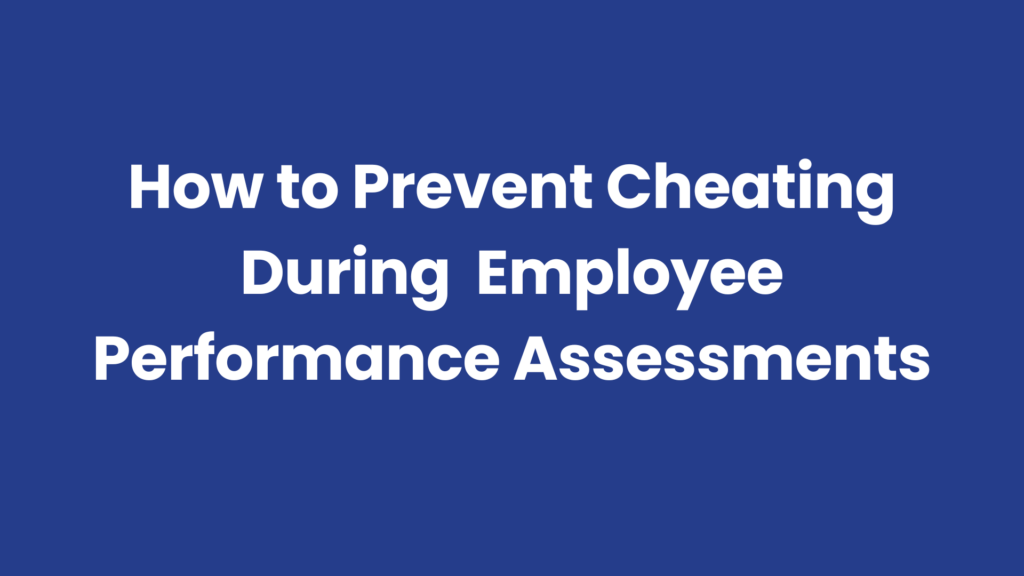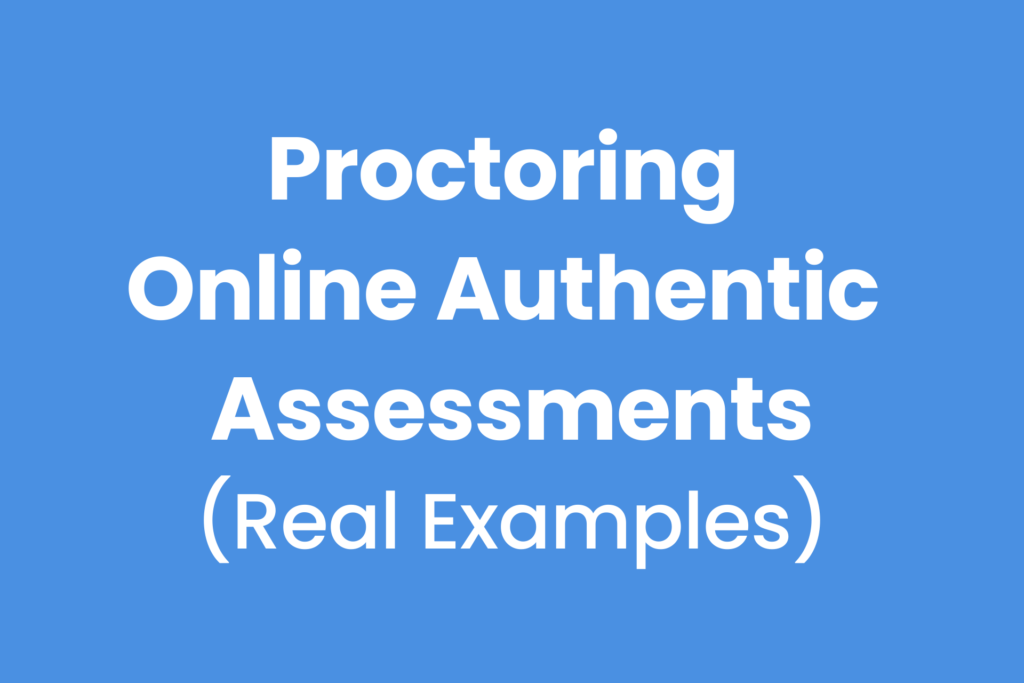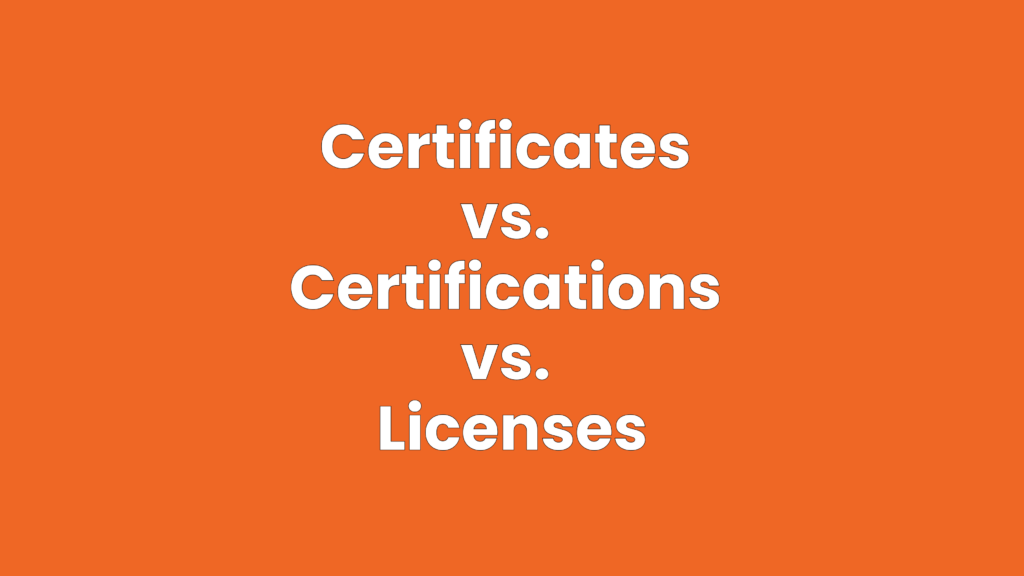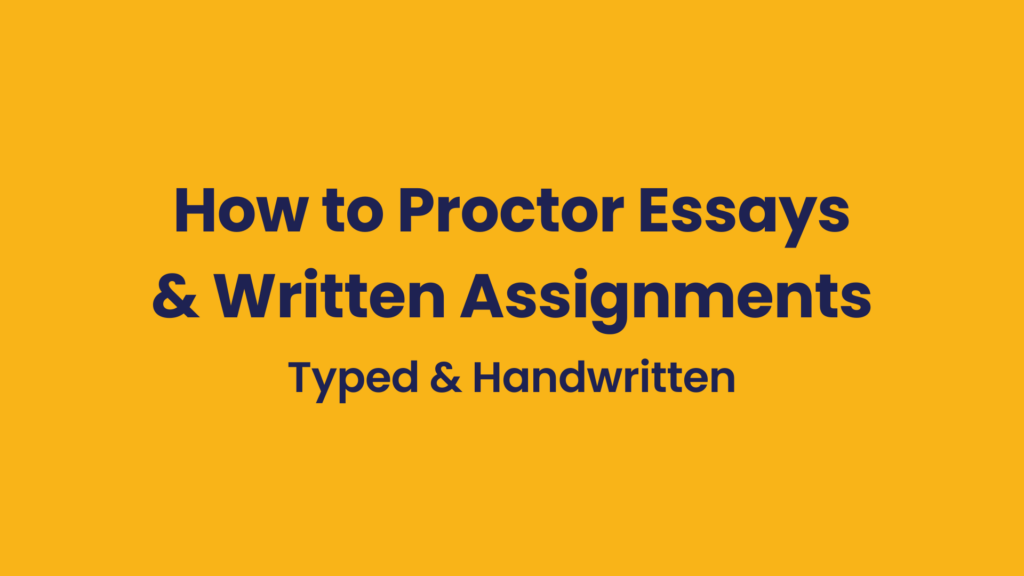13 Ways to Stop Cheating on Online Tests
- Detecting cell phones and other devices
- Blocking AI like ChatGPT
- Catching remote access software in contract cheating
- Finding leaked test questions on the Internet automatically
- Locking the test browser down
- Listening for voice commands to activate voice assistants
- Implementing hybrid virtual proctoring (AI + humans)
- Verifying ID and monitoring behavior with a webcam
- Creating explicit test rules & instructions
- Reducing test anxiety
- Prioritizing flexbility and accessibility
- Addressing students suspected of cheating
- Spotting trends in academic dishonesty through exam recordings and reports
How do these prevent exam cheating?
1. Detect cell phones and other devices
Most people have cell phones or other devices, like smartwatches and laptops, which could be used to look up answers during online exams.
In fact, 71% of online proctored exam violations involve cell phones or other secondary devices.
Most exam proctoring services rely on a proctor to see a phone in real time, which is unreliable when a proctor is watching a nearly dozen test takers at once.
But some solution’s cell phone detection technology identifies when test takers attempt to use their phones and other devices to look up answers and when Apple devices are present in the testing area.
2. Block AI chatbots & browser extensions
ChatGPT, Claude, and Google Gemini—all generative AI chatbots—are as controversial in online education as they are popular.
You tell it what to write about and it generates that content in a few seconds. They write pretty well overall, but they can be overly proper and generic sometimes. But with the right instructions, they can write like we (humans) do, and they’re really difficult for AI writing detection software to catch.
How to detect AI writing
Can plagiarism checkers help?
Nope. AI chatbots don’t plagiarize content. They create “fresh” text based on what billions and billions of resources they’ve been trained on.
Do AI writing detection tools work?
Not really. They’re helpful as a high-level gut check, but studies show that AI writing detection tools struggle when the AI-generated text is manually edited with a few small word swaps and paraphrasing. And, as we mentioned earlier, using specific prompts generates human-like content.
Can remote proctoring help?
Yes. Remote proctoring systems can prevent the use of unauthorized AI tools during online exams and even during essays and other written assignments by:
- Blocking access to other browsers and applications so AI tools can’t be used
- Listening for commands that activate voice assistants, which could be used to navigate AI
- Preventing test takers from pasting pre-copied text into exams and assignments
3. Catch remote access software (contract cheating)
Has a technician ever remotely accessed and fixed your computer? That’s remote access software in action.
The downside is that it’s also used for cheating on online exams. The person getting credit pays a service for an expert to secretly take the test for them while they appear on video as if they’re completing the test.
How to block remote access software during online exams:
- Show locations by IP address: use proctoring software to show exam locations by IP address. If exams are taken in countries without known test takers, it could mean that proxy test-taking services were used and further investigation is needed.
- Record screens and require keyboard commands: before the tests or written assignments begin, ask learners to use specific keyboard commands that display all active applications on their device.
- Blocking applications: various settings within proctoring software can be used to block remote access applications, such as the browser lock.
4. Use software to find leaked test questions on the internet
Have you Googled your test questions? You should, because they’re often leaked on forums like Reddit, as well as sites that pretend to help with test prep and homework, but they’re really just repositories of test content alongside other avenues of cheating, like their “Expert Q&A” which is just hundreds of their “experts” answering questions 24/7 via chat.
The problem is that searching for your test content takes time… a lot of time.
The good news is that Search & Destroy automatically searches the web for your leaked test content in a few minutes and, if it finds any, gives you a one-click option to send a takedown request.
5. Use a browser lock as an initial defense
6. Detect voices and sounds in the room
Use voice detection software that listens for specific keywords or phrases that activate voice assistants, such as “Hey Siri” or “OK Google,” to identify test takers who may be attempting to gain an unfair advantage. It then alerts a live remote proctor in real-time to review the situation and intervene if necessary.
This approach to makes proctored online exams less intimidating and non-invasive because a proctor will only intervene if the AI detects potential misconduct.
7. Use hybrid virtual proctoring to secure online exams
Hybrid proctoring solutions, which combine AI with human proctors and browser lockdown software, is highly effective to prevent cheating. But even with the same type of proctoring, the experience can vary widely depending on the company’s approach, for example:
- Company 1: a remote proctor, visible in a box on students’ screens, watches around a dozen test takers at once while AI monitors their behavior.
- Company 2: AI monitors behavior and pauses the exam for potential misconduct (even for innocent actions like sneezing), forcing a live proctor to step in unnecessarily.
- Company 3: behavior is monitored by AI, but instead of pausing the exam for potential misconduct, the AI alerts the proctor, who reviews the situation and only intervenes if necessary.
Based on these examples, it’s important to dig into how different companies approach proctoring, as it can seriously impact the entire test-taking experience and exam integrity.
8. Use video to monitor behavior and verify ID
Use video monitoring to verify identity, scan the room for unauthorized resources (cell phones, books, etc.), and monitor students’ behavior during the proctored exams.
9. Provide explicit rules and clear instructions for your online exams
Writing test rules and instructions can be tricky because they need to be clear and concise, yet comprehensive and objective. Even when rules are direct and clear, there could be room to make them more comprehensive and adaptable, like in this example:
- Original test rule: Do not talk during the test.
- Improved test rule example: Do not communicate with anyone during the test, whether verbal, non-verbal, or electronic.
10. Take steps to help reduce test anxiety
It’s important to understand what causes test anxiety before taking steps to help reduce it. A student survey indicated that many feel anxious before an exam because they don’t know what to expect and they have technology concerns.
Two tips to help test anxiety:
- Provide frequent practice tests to help students understand what to expect and ensure that their technology works correctly.
- Use online proctoring software that combines AI with human proctors to help support students during the exam.
Learn more about how to reduce test anxiety using online learning technology.
11. Prioritizing accessibility and flexbility
It’s proven that students are more likely to cheat when they’re tired. That’s why on-demand proctoring services with 24/7/365 live support are so important. This gives students the ability to take proctored exams when they’re most alert and access real-time support if they need it.
12. Talking to students about cheating
Talking to a student suspected of cheating isn’t fun but, but it’s necessary to protect academic integrity now and in the future. When cheating is handled right—easier said than done—you set the tone for your students and build a culture of academic integrity.
Discussing cheating with students might seem simple, but it takes a lot of preparation and planning to make the conversation effective and to be ready for any situation that comes your way.
13. Use reporting to identify exam trends that may highlight cheating
Remote proctoring software collects extensive data, offering insights into how students approach exams through actionable reports and time-stamped recordings directly in the LMS. Ideally, the reports will be easy-to-read and include timestamped recordings of important behavior.
Here’s how a lecturer from the University of Florida used remote proctoring to identify trends and anomalies in test scores:
“After the second quiz in the third week of class, I had a ceiling effect that looked like a ski jump, with 80% of my students getting 100% on tests. I knew there was something seriously wrong. I began looking closely at who had missed which questions over the two quizzes. That’s when I realized I needed a proctoring solution of some kind. When I initially attempted to address the issue, I really didn’t even know enough to ask the right questions to get help… It was more than a tool to guard or block students from using inappropriate information. It was also a means to detect and determine many different ways that students approach the exams.” – Ryan P. Mears, PhD, Lecturer, University of Florida
4 common reasons for cheating on exams
- Pressure: whether it's keeping a scholarship or passing a certification for a raise, pressure drives many to cheat on exams.
- Opportunity: surveys tell us that people are more likely to cheat on online exams than they are in a classroom or testing center.
- Competitiveness: school and work are competitive, which can drive some to use questionable tactics when they feel they can't compete fairly.
- Lack of preparation: sometimes cheating happens because someone just isn't ready—maybe due to long work hours, extracurriculars, health issues, or family time.
Sign up below to receive more resources for tips, best practices, ebooks, and industry trends
Want to see Honorlock in action? Schedule a demo.









